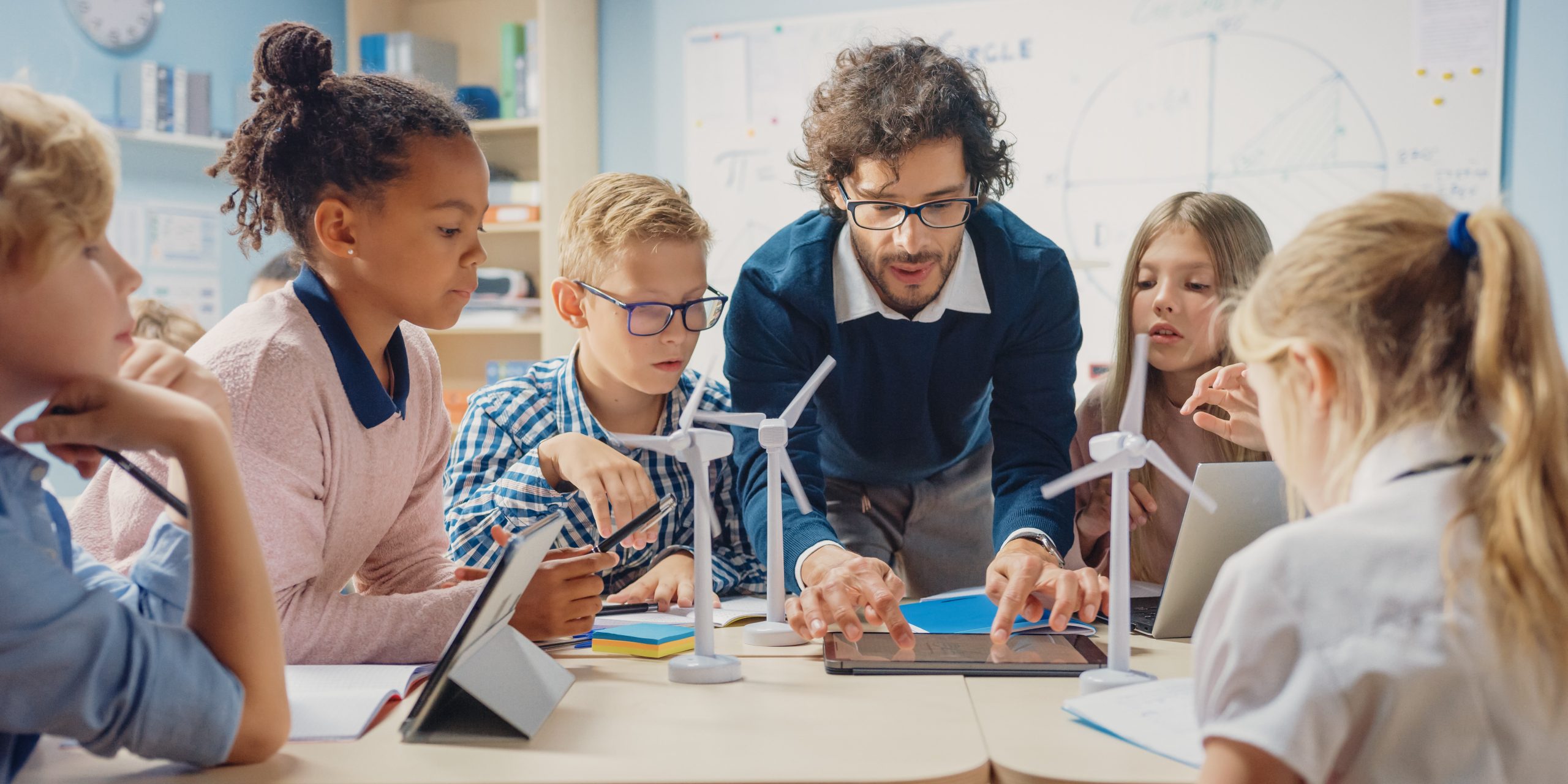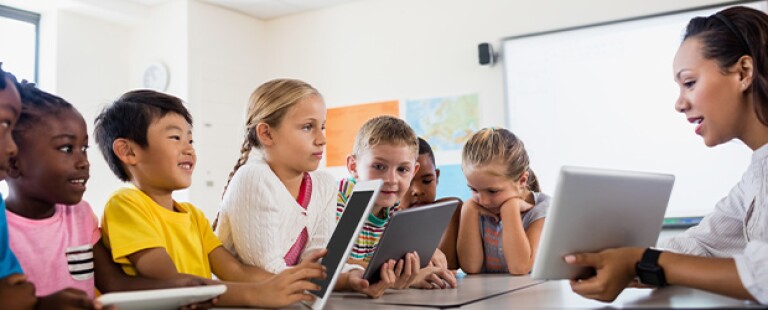Master Primary Science Concepts with Quality Tuition in Singapore
Master Primary Science Concepts with Quality Tuition in Singapore
Blog Article
Exploring the Different Teaching Approaches in Primary Scientific Research Education And Learning Today
The landscape of key scientific research education and learning is advancing, with numerous mentor methods acquiring importance in contemporary class. Inquiry-based discovering, hands-on experiments, and the assimilation of technology are redefining just how educators engage young minds. Additionally, collective approaches and differentiated instruction are being used to accommodate the varied needs of pupils, improving both engagement and understanding. As we examine these techniques, concerns occur concerning their efficiency and the implications for future educational methods. What might these shifts in approach mean for the following generation of learners?
Inquiry-Based Understanding
Inquiry-Based Knowing (IBL) is an instructional approach that motivates pupils to explore scientific principles through doubting, examination, and hands-on experimentation. This approach highlights the duty of students as active participants in their learning, advertising important thinking and analytical skills. By involving with real-world questions, trainees come to be motivated and curious, which enhances their understanding of scientific concepts.
In IBL, educators act as facilitators, assisting pupils as they navigate their queries as opposed to providing details straight. This student-centered approach enables differentiation, accommodating various discovering paces and styles. Students develop skills in developing theories, designing experiments, and evaluating data, which are essential for scientific literacy.
Additionally, IBL fosters collaboration among pupils, urging them to share findings and concepts. This collective inquiry advertises social abilities and a sense of neighborhood within the classroom. The process of inquiry encourages durability, as trainees learn to accept failure as a stepping stone towards understanding.
Hands-On Experiments
Hands-on experiments are an essential part of effective science education and learning, complementing the principles of inquiry-based learning. These experiments enable students to engage straight with clinical concepts, fostering a much deeper understanding with experiential knowing. By adjusting materials and observing outcomes, young students can understand abstract concepts in tangible means.
Such activities advertise important thinking and analytic skills, as students assume results, conduct experiments, and evaluate results. This process motivates them to ask concerns, fine-tune their understanding, and develop a scientific mindset. In addition, hands-on experiments can be customized to diverse knowing designs, ensuring that all trainees have the possibility to engage meaningfully with the material.
Moreover, hands-on experiments often encourage cooperation amongst peers, advertising synergy and communication skills. Operating in teams makes it possible for students to share concepts, discuss findings, and pick up from one an additional, which enhances their overall educational experience.
Including hands-on experiments into the main scientific research educational program not only enhances the discovering atmosphere however likewise cultivates a lifelong rate of interest in science. By actively taking part in their education, trainees are more probable to develop a passion for scientific questions that expands beyond the class.

Technology Combination
Integrating modern technology right into primary scientific research education and learning has actually ended up being increasingly necessary in cultivating trainee interaction and enhancing finding out end results. The usage of electronic tools, such as interactive simulations, virtual labs, and academic software application, offers students with chances to check out scientific principles in innovative means. These sources facilitate a much deeper understanding of intricate subjects by enabling students to visualize and manipulate variables that would certainly be unwise in a standard classroom setup.
Additionally, innovation combination motivates customized discovering experiences. Students can advance at their very own speed, taking another look at challenging concepts with multimedia sources, which deal with various discovering designs. This flexibility not just supports individual development but likewise cultivates a sense of freedom in learners.
Additionally, innovation works as a bridge to real-world scientific research, linking pupils with present research study and professional payments. Access to clinical journals and online databases broadens pupils' perspectives on scientific inquiry and promotes essential assuming abilities.
Collaborative Learning
Collective knowing plays a crucial function in key science education by cultivating synergy and communication skills among pupils. This approach encourages learners to interact, share knowledge, and take part in analytic, which improves their understanding of clinical principles. By taking part in group tasks, pupils learn to verbalize their ideas, listen to varied perspectives, and work out remedies, all of which are essential skills in both scholastic and real-world contexts.

Research study indicates that collective learning can bring about enhanced inspiration and engagement in scientific research topics, as trainees locate pleasure in common experiences (primary science tuition Singapore). Additionally, this technique prepares students for future collective endeavors, furnishing them with the abilities needed for reliable team effort in college and professional atmospheres. Inevitably, accepting collaborative learning in key scientific research education can substantially enhance the learning experience and advertise a much deeper understanding of clinical inquiry
Separated Guideline
:max_bytes(150000):strip_icc()/GettyImages-595348697-5b356e9ac9e77c00372d12a8.jpg)
Distinguished direction can manifest in different methods, such as varying the content, processes, or products of discovering. For example, educators might make use of tiered jobs that provide varying degrees of intricacy, permitting trainees to operate at their corresponding preparedness degrees. Furthermore, versatile grouping strategies can facilitate cooperation amongst trainees with different capacities, cultivating peer understanding.
Evaluation plays a critical duty in this strategy, as it notifies instruction and helps instructors recognize each pupil's special demands. Formative analyses, such as tests and observations, can assist instructors in adjusting their methods to enhance learning results. primary science tuition Singapore. Ultimately, by applying set apart direction in key scientific research education, teachers can cultivate an extra equitable and efficient understanding environment, encouraging all students to reach their complete possibility in understanding clinical sensations
Conclusion
In recap, the diverse mentor methods in key science education, consisting of inquiry-based learning, hands-on experiments, modern visit our website technology integration, joint discovering, and distinguished instruction, jointly contribute to a more reliable learning setting. These techniques promote crucial thinking, analytic abilities, and a much deeper comprehension of clinical principles. By executing these strategies, educators can produce engaging and helpful classrooms that resolve the diverse needs of trainees, eventually cultivating a long-lasting interest in science and improving scholastic accomplishment.
Inquiry-Based Learning (IBL) is a pedagogical strategy that urges students to discover clinical principles via wondering about, examination, and hands-on testing.Collaborative learning plays an essential duty in main science education by promoting teamwork and interaction abilities among students.Research shows that joint understanding can lead to raised inspiration and involvement in scientific research subjects, as students find enjoyment in shared experiences.In fostering an inclusive learning setting, set apart guideline arises as an essential approach to fit the varied demands and capacities of students in primary scientific research education. Inevitably, by executing differentiated instruction in main science education, educators can cultivate a more efficient and equitable discovering environment, encouraging all trainees to reach their complete capacity in understanding clinical phenomena.
Report this page